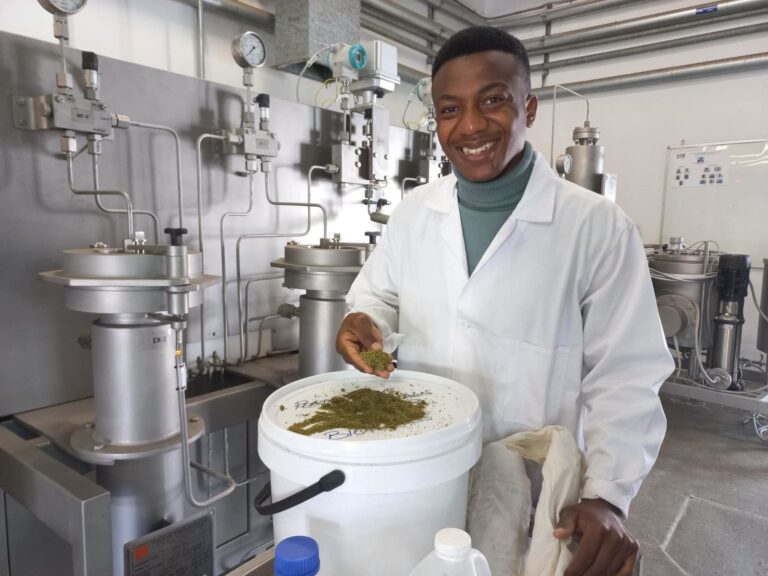
Two South African tertiary institutions have finalised partnerships in the past month that will boost research and innovation in Mzansi’s agri sector.
The University of the Free State (UFS) has teamed up with ZZ2, a leading South African farming and fresh produce company, while the Tshwane University of Technology (TUT) has formed a partnership with the Council for Scientific and Industrial Research (CSIR).
In a bid to combine their skills and resources, the UFS and ZZ2 will establish a company called FreeFarm Innovation that will involve the university’s top researchers, students, facilities and technology.
According to a press statement by the university, the company will drive research, commercialisation and product enhancement in the agri sector. Initially, the focus will be on the development of effective fertilisation products and strategies but the two partners will also collaborate on soil science, marketing, logistics, water quality, production systems, plant breeding, entomology, chemistry, and animal science.
“Universities are key role players in bridging the theory-practice gap by ensuring that we generate functional knowledge,” says Prof. Corli Witthuhn, vice-rector for research and internationalisation at the university.
She adds that the university’s knowledge and resources will be enhanced by ZZ2’s “established, reputable and successful business and network structure within the agriculture sector, both locally and globally”.
“The UFS is constantly exploring meaningful partnerships to support the improvement of local and global communities and industries. We are excited about the collaboration and partnership with ZZ2 in developing new solutions and practises for the agricultural sector.”
TUT partners with CSIR on cannabis
Meanwhile, TUT and the CSIR signed a memorandum of understanding to establish a cannabis research hub to support the medical cannabis industry in the country through research and product development.
According to the university, the TUT/CSIR Cannabis Research Hub will work in alignment with the National Cannabis Master Plan and hopes to do the following:
- Create an extraction and product development hub for use by entrepreneurs to de-risk early phase research, development and commercialisation.
- Create a research and training facility for technical and work-integrated learning of current and future workers in the cannabis and natural products industry in South Africa and the sub-region. The focus will be on chemistry, engineering and pharmaceutical training via internships and workplace for students and entrepreneurs.
- Create, retain and exploit intellectual property (IP) in the country to maximize the benefits of cannabis and natural products from Southern Africa.
- Product and process development in certain therapeutic areas.
- Support the strategic building of a cannabis and natural products industry in the region and maximize value.
In a news report on the university’s website, Prof. David Katerere, professor in pharmaceutical science and TUT’s research platform chair in pharmaceutical and biotech advancement in Africa, says they can now leverage their expertise to support businesses and entrepreneurs in the region to produce good-quality, safe products for local use and possible export to other countries and markets.
The university hopes to use the partnership to start breaking down some of the high barriers to entry across South Africa’s entire cannabis value chain, which is “akin to entering the pharmaceutical industry space with little financial backing, business training and technical know-how”.
The University has already secured equipment to support the research activities at the hub.
ALSO READ: New platform puts crop research at farmers’ fingertips
Sign up for Mzansi Today: Your daily take on the news and happenings from the agriculture value chain.